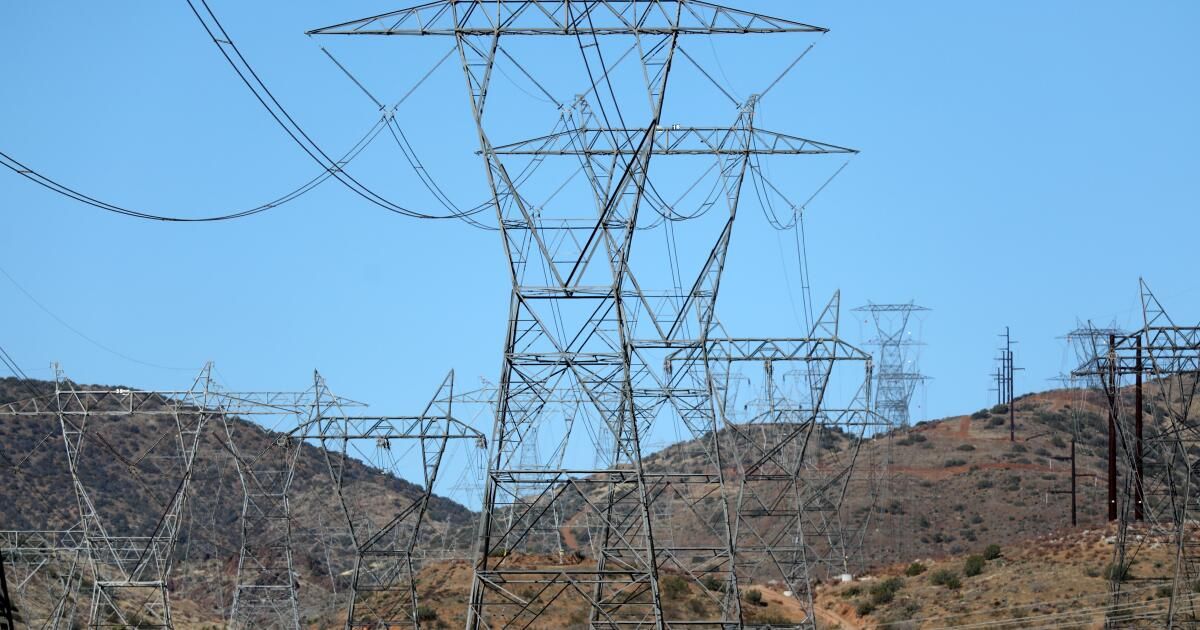The Assembly Appropriations Committee on Thursday killed a closely watched bill that would have required lawmakers to study and review a controversial new electric charge recently approved by the Newsom administration.
Committee members did not discuss their concerns about the bill known as AB 1999 or why they decided to stop the bill.
In a roll call vote, two Democratic committee members, Timothy Grayson of Concord and Gail Pellerin of Santa Cruz, voted in favor of the bill. The rest of the 15-member committee withheld their votes.
Some lawmakers said this week that they had received more calls from constituents about the new $24.15-a-month electric fee and AB 1999 than about any other issue.
The state Public Utilities Commission, led by Newsom appointees, approved the position last week. In exchange for paying the new rate, consumers will get a lower rate for each kilowatt hour of energy they use.
The Newsom administration says the new billing structure is needed to encourage more people to buy electric cars and replace gas appliances in their homes, which would reduce the use of planet-warming fossil fuels.
With California's electricity rates already the second highest in the country, the new rate has angered people across the state.
A coalition of more than 250 consumers and other groups has been protesting the new monthly charge, saying millions of Californians who live in apartments or small homes that use little electricity will see their bills rise to subsidize those who use much more energy.
They point to a study that found 3.9 million households will pay between $65 and $225 more a year under the new billing structure.
People who have solar panels on their homes will also be subject to the monthly charge.
The new rate affects customers of investor-owned electric companies, including Pacific Gas & Electric, Southern California Edison and San Diego Gas & Electric. It does not apply to customers of the Los Angeles Department of Water and Power or other municipal utilities.
The public utilities commission says power companies will not receive additional revenue under the change. The amount the companies collect from the monthly fee, the commission said, will be equal to what they will lose by charging a lower rate for each kilowatt hour.
But critics point out that Newsom's 2022 bill to begin the process of imposing the new monthly fee removed a $10 cap on such fees that had been in place since 2013. That 2022 bill passed in a a matter of days with almost no debate.
In January, Jacqui Irwin, D-Thousand Oaks, introduced AB 1999 to undo much of Newsom's 2022 bill.
The bill faced a rocky road. Last month, Assembly leaders halted the legislation before it had even received a hearing.
Irwin then amended the bill in an attempt to revive it. The invoice passed his first committee hearing On Wednesday.
The amended bill would have required a study in 2028 of customer bills to determine who was paying more or less under the new rate structure. The bill said the monthly fee could be repealed if the legislature determined it was not working as the public service commission intended.
Irwin's bill would also have prevented utilities from raising the fixed charge above inflation.
Newsletter
Towards a more sustainable California
Get Boiling Point, our newsletter exploring climate change, energy and the environment, and be part of the conversation and the solution.
You may occasionally receive promotional content from the Los Angeles Times.












